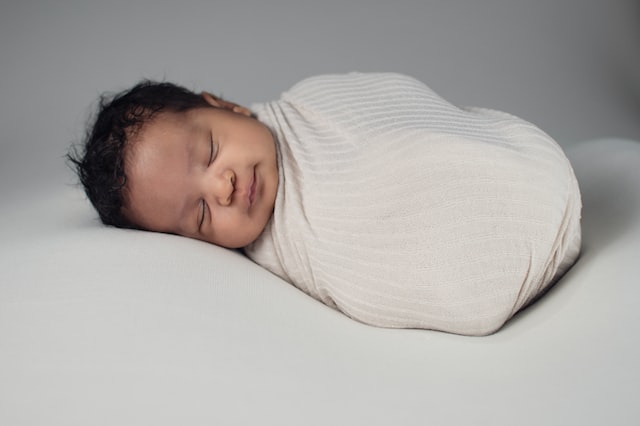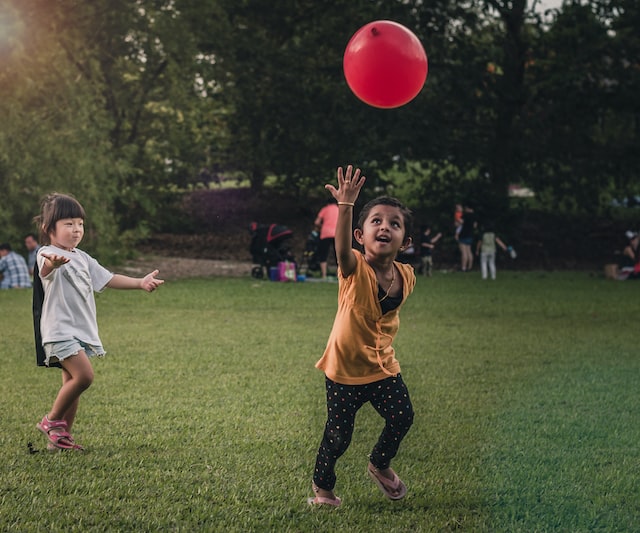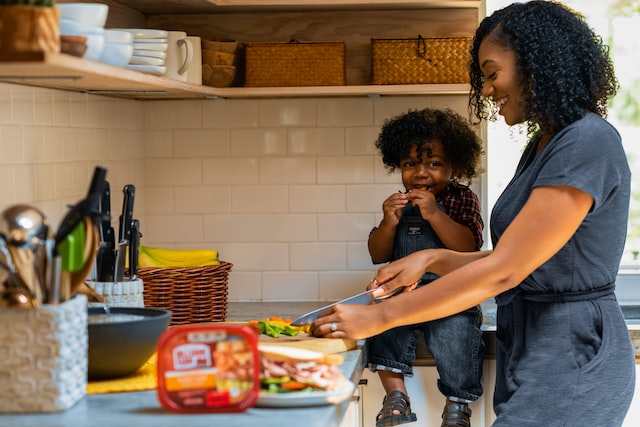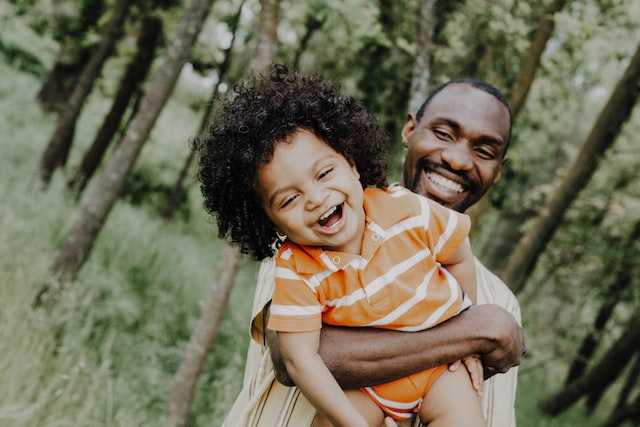In January 2022, to my surprise and immense joy, I discovered I was pregnant. As we began to prepare for Baby Z’s arrival, I started to question how (and if) I could incorporate all I learned as a Montessori teacher into my parenting style. What type of parent would I be? Will I be able to apply my teaching knowledge and skills? Could you follow Montessori from birth? Without hesitation, more than one person kindly warned me that all the excellent advice I had gathered in my recent book would rapidly be thrown out the window with my children (the ominous “You will see…”).
Since Baby Z’s birth, I’ve had time to reflect on these words while also experiencing the wonderful yet challenging role of motherhood. So, here’s what I’ve discovered in the previous five weeks about how to follow Montessori from birth.
follow your instinct (or not)
In the first days of Baby Z’s life, I felt equally scared and overwhelmed with joy, unable to wrap my head around the fact that her survival depended entirely on us. Following Montessori from birth was the last of my worries but, fortunately, I was informed, parents develop an instinct that helps them provide for their children’s needs. As I waited for this superhuman talent to manifest, I began to wonder if it was a tool I should rely entirely. Can you truly trust your instincts while being overtired, tugged in a million directions as parents often are and busy dealing with your own childhood trauma without even realizing it?! While I believe that the bond between carers and their children gives us some advantages, I also think that being a parent requires constant work. For this reason, besides listening to my intuition, I am researching, seeking advice, and asking for help. Above all, I am doing my best to get to know this new tiny person in my life, understanding her needs, personality and her unique way of communicating. All of this will hopefully strengthen my instincts as a growing parent and help me care for Baby Z.
respect
When chatting with other parents and discussing Montessori education, I often use the term “respect”, reminding adults to treat children in the same way they would like to be treated. To give an example, a few days ago, I observed a couple of parents deciding to get ready to leave a party, collecting their stuff, saying their goodbyes and finally heading to their child. Their little one was, at that moment, busy playing with another adult in the room. Without warning, mum approached him from behind, and pushed a scarf through his head and down to his neck. His reaction was strong and quickly deteriorated when they tried to force him to wear the jacket, ending with him throwing himself on the floor. A lovey afternoon ruined in a matter of seconds.
respect
Why does this episode connect with the word respect? Simply because no adult would like to be approached from behind, taken by surprise and forced to dress and leave a party. Even though the adults always remain in charge of certain decisions (for example, when it is time to go home), the child still has the right to be warned of what is about to happen. A little warning can go a long way with a toddler (or anyone, really).

kindness
If communicating our intentions is not very common with older children, it is even rare with babies. In general, we often expect children to tolerate any of our behaviours, including forcing, pushing, pulling, demanding and shoving. Whenever we interact with Baby Z, we do our best to explain to her what will happen next, with simple and clear words, whether that’s a nappy change or me passing her to another person. Narrating everything I do (“Shall we change your nappy now? I am going to open your baby grow, undo the bottons now. Let’s see what we have. You did a wee! Shall we change it then?”), allows me to keep her informed and introduce new vocabulary, validate her emotions (she often gets upset when we are undressing her) and turn every moment into a meaningful interaction. Ultimately this is about showing our baby, any baby, the basic respect that any other human being deserves. It is never too early to role model positive interaction, even with a little baby who is learning the basics of human interaction.
Tuning in
When studying for my Montessori Diploma, I learnt the word “Tuning in”, which I never heard before, referred to children. Tuning in requires us to actively listen to what the other person is communicating, aligning ourselves to their unique language and adjusting our behaviour accordingly. Tuning in is particularly important with babies, not only because they cannot yet communicate with words. Our response will also model their interpretation of the world and interaction. When we respond promptly to their needs or at least show up for their needs of love and care, they are learning that their voice matters, is listened to and that the world they landed in is populated by adults that can be trusted. Those first few months are so important, so crucial as they listen, observe and take in everything we give to the most basic level. Even when we don’t understand why Baby Z is crying, we are present, offer comfort and do our best to soothe her discomfort.
montessori for babies
Ultimately, what I learnt in the past two months is that you can certainly start following the Montessori method from birth. The Montessori approach is about showing respect and kindness for the child, and that can and must start from birth. We can narrate our actions and inform them of what is about to happen. Respond promptly to their needs, fix what is wrong (hunger, tiredness, cold) or at least give comfort when we are unable to understand or fix. Finally, acknowledge their feelings and accept their need for expressing them in the way they choose. This is Montessori for babies.



